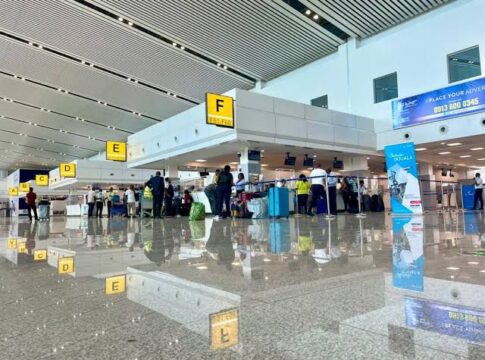The Nigerian government has spent N8.73 billion on airport power infrastructure in 2024, focusing on ensuring reliable electricity at the newly expanded international terminal of Nnamdi Azikiwe International Airport in Abuja. The funds were part of efforts to address persistent power shortages that have long plagued the country’s busiest airports.
A report from transparency platform GovSpend, revealed significant payments to J. Marine Logistics Ltd, the outsourced power supplier. Between March and September 2023, the government paid N5.67 billion for power, followed by an additional N2.19 billion in May 2024 for services spanning late 2023 and early 2024. An extra N874 million was also allocated on the same day.
The Nnamdi Azikiwe International Airport has faced frequent power disruptions, which have caused operational delays and safety concerns. Airfield lighting, baggage handling, and security scanning systems have been notably impacted, particularly during peak travel seasons and nighttime operations.
Aviation expert Olumide Odunayo praised the government’s efforts but urged for a more sustainable solution. “Alternative power sources like solar or wind could provide long-term benefits,” he said. “Current arrangements, relying on expensive electricity and diesel generators, are not only costly but environmentally unsustainable.”
READ MORE: Nigeria’s Supreme Court, 14 MDAs Fail 2024 Ethics Test, ICPC Report Reveals
Odunayo pointed out that the high costs of power have led to increased service charges, ultimately affecting passengers. He recommended a shift towards renewable energy sources to reduce both costs and environmental impact, adding, “Investing in solar or wind would cut costs and provide reliable, eco-friendly energy.”
The Nigerian government has also earmarked N105.95 billion for aviation in the 2025 budget, significantly higher than the N63.32 billion allocated in 2024. Among the planned investments, N5 billion is designated for power and energy upgrades at airports in Lagos, Abuja, and other major locations.
These upgrades aim to enhance passenger experiences and improve operational efficiency at Nigeria’s airports, which are increasingly seen as key international hubs. The new terminal in Abuja, commissioned in December 2018, was designed to accommodate growing passenger numbers and provide modern amenities.
Minister of Aviation Festus Keyamo emphasized the push for greener airport operations, revealing that the government spends N1 billion monthly on electricity at Lagos Airport alone. “We are gradually moving towards eco-friendly energy solutions, including solar power, which could reduce our monthly electricity costs by 30%,” Keyamo said.
He added that this initiative aligns with global goals for net-zero carbon emissions in aviation. “By shifting to solar, we will save significantly and contribute to a more sustainable future,” Keyamo said.




